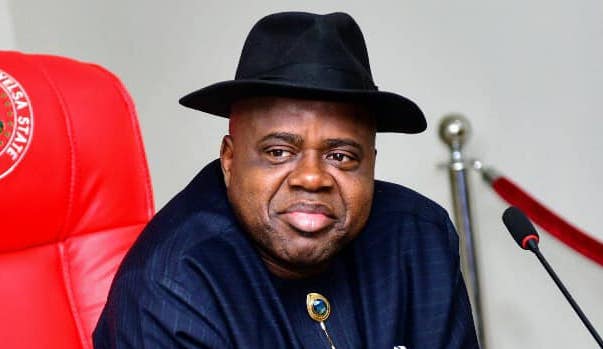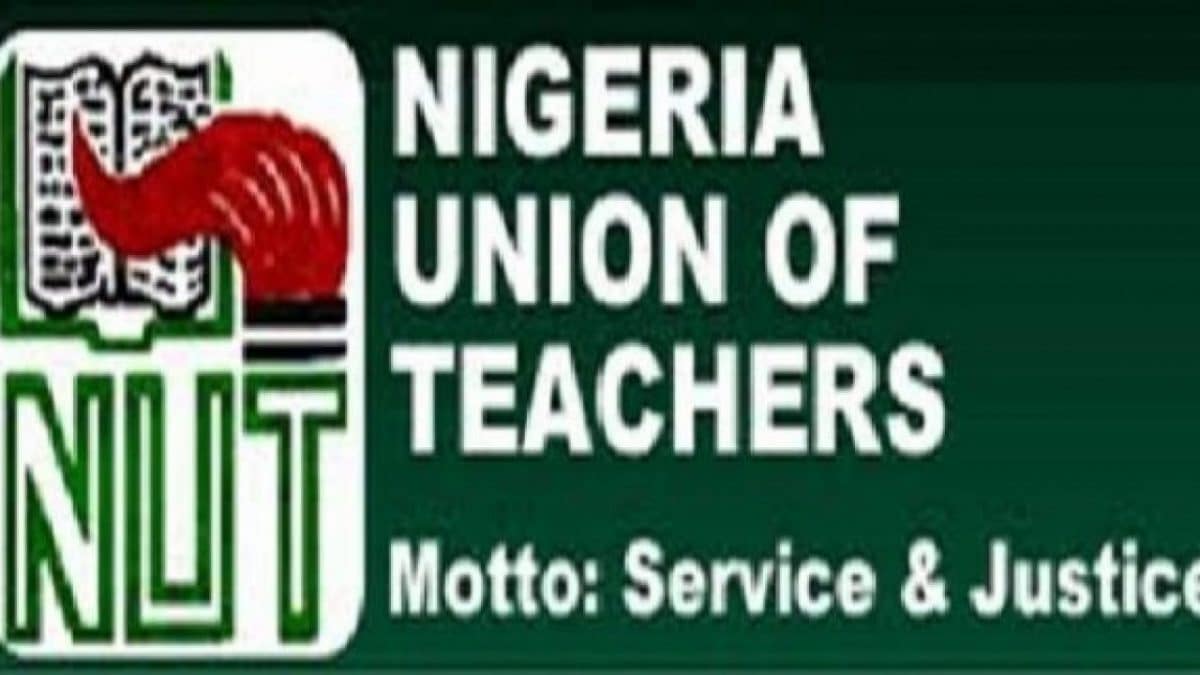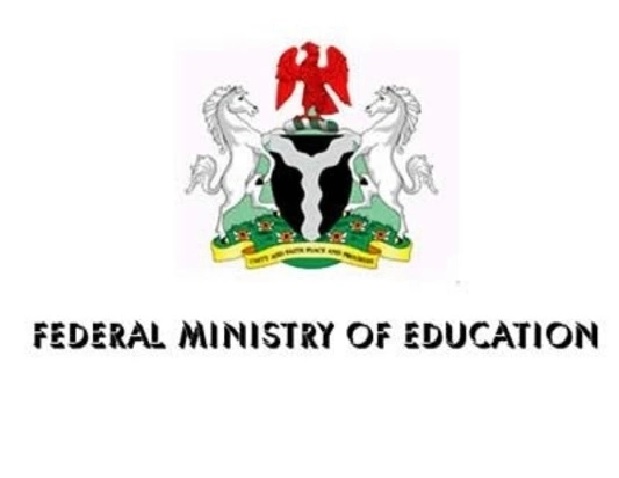Education
Bayelsa Proposing a 15-year Education Turnaround

From Tayese Mike, Yenagoa
The Bayelsa State Government is planning an education summit to provide an appropriate and adequate education delivery system capable of continuously propelling the system to be functional, efficient, effective and goal driven.
The proposed summit has been described as an “all embracing education summit towards a 15-year plan and a domesticated state policy for sustainable, rapid and improved education delivery and development
.
” An interim report on the summit made available to DAILY ASSET in Yenagoa says “the quest is to establish an appropriate system that would accelerate development and peaceful coexistence in terms of scientific and economic advancement; productivity; socio-cultural and religious harmony and political stability.”Former President, Chief Olusegun Obasanjo is expected to chair the five-day summit in Yenagoa, the Bayelsa State capital while Dr Akinwumi Adesina, President of African Development Bank Group (AfDB) will be the keynote speaker at the event.
An 11-member summit technical committee was inaugurated to evaluate the current challenges in the educational sector in the state, especially with regards to declining outcomes, declining completion rates, poor infrastructure, teacher quality and distribution and new pathways in the delivery of education and provide the framework for hosting an education summit with the capacity to attract global institutions and partners in the field of education whose perspectives would help to shape the future of education delivery and development.
The committee has the state Commissioner for Education, Hon. Dr. Gentle Emelah as chairman, the Executive Secretary of Education Development Trust Fund (EDTF), Dr Mrs Alice Atuwo as co-chairman and the Executive Chairman, Teachers Training,
Registration and Certification Board (TTRCB), Dr Mrs Stella Peremoboere Ugolo as secretary. Other members include the Permanent Secretary, Ministry of Education, Mr Christopher Ewhrudjakpo, his predecessor, Mr Walton Liverpool, Prof Ebimieowei Etebu, a senior lecturer at the Niger Delta University (NDU) and board member, Science and Technical Education Board (STEB), Dr Crispin Allison, an education specialist.
Barr Warmate Jones Idikio, Director-General Yenagoa Chamber of Commerce Industry Mines and Agriculture (YECCIMA) who also serves as the summit administrator, Dr Jasper Ezenwaka, a lecturer at NDU, Queen Josephine Ezonbodor-Torru, former Commissioner for Education Commissioner and current Chairman, Bayelsa State Scholarship Board and Mr Ayedi Alexander of the EMIS Office in the Ministry of Education.
The interim report noted that desire of stakeholders for such a summit has crystalized into positive actions by the Prosperity Administration led by the state Governor, Senator Douye Diri and the Education Commissioner, Hon. Gentle Emelah to attain higher levels of success.
Both men committed themselves to ensuring that an embracing education summit be organised to stabilise the sector and improve upon the gains already made hence the ministry is initiating the summit which is the first of its kind in collaboration with other education organs.
The interim report also notes that Bayelsa State has “matured to the level of propagating and domesticating a wholesome education plan and policy to facilitate adequate education delivery to guarantee stability, continuity and perpetuity.”
Stressing that education is an input-process-output system, the report enumerated the four major determinants of a functional system that must be planned for: they are context, inputs, processes and outputs.
The major areas of focus for the summit are indicated to include education demand, provision and access; management and administration of the system; education funding and financing; infrastructural requirements and provision; supply, distribution and utilisation of personnel; and, quality control, quality assurance and curriculum.From the above, sub-10 themes were selected which include access to education; school administration; education financing; infrastructural situation, requirements and development; quality assurance and control; and, issues of curriculum.Others are establishment and management of higher institutions; establishment, administration and management of primary and secondary schools; minimum standards for teacher supply, distribution and utilisation in schools with regards to quantity, quality, speciality and experience; and, teacher emoluments, promotions, incentives, sanctions, discipline, retention and retirement.
All of these are expected to address the questions of context, key perspectives and challenges of educational development in the state, which include the conviction that education is “a must do” assignment in the state as it can maximise the prospects of a prosperous state.
However, though educational development has commenced in the state, the pace has been too slow due to a myriad of factors: there is also the issue of preponderance of unilateral engagements and projects initiations that are not in harmony with overall educational development objectives of the state.
According to the interim report, educational development and integration needed to be people centred with stronger partnerships with citizens, private sector players and civil society institutions to facilitate progress and sustainability.
Education is actually seen as the most valuable strategy to galvanise the youth, which is the most prized asset of the state and the summit is, therefore, expected to “advocate for and provide clear policy guidance based on research and best practices for a stronger partnership for faster inclusive education and integration in all dimensions.”
No doubt, the issue of educational development in Bayelsa State is challenging especially as the state has to strive to do catch up with other states in so short a time; at the time of creation in 1996, Bayelsa, though having primary and secondary schools, had no tertiary institutions hence her classification as an educationally backward state.
The state of education could also explain the prevalence of illiteracy, ignorance, poverty, militancy, cultism, child pregnancy, unemployment, underemployment, low per capita income, lack of sufficient and skilled manpower, disease, increased death rate, low life expectancy and poor infrastructure outlay, the interim report stated.
However, within the past 25 years, successive governments have worked according to their abilities so that the state now boasts of 547 public primary schools with 120,000 enrolment, 195 public secondary schools with 85,000 enrolment and seven higher institutions including three universities – Niger Delta University (NDU), Amassoma, University of Africa, Toru-Orua and Bayelsa Medical University, Yenagoa.
The other tertiary institutions are the Isaac Jasper Boro College of Education, Sagbama, Bayelsa State Polytechnic, Aleibiri, College of Nursing and Midwifery, Tombia, School of Tourism and Hospitality, Yenagoa and the School of Health Technology, Otuogidi.
Currently, there are eleven (11) functional free boarding secondary schools, one located in each of the eight (8) local government areas with total student population of over 5,000 have been established just as many Bayelsans have benefitted from undergraduate and graduate scholarships within Nigeria and overseas.
The state government has established relevant organs to strengthen the operations of the system such as the Education Development Trust Fund (EDTF), Teachers Training Registration and Certification Board (TTRCB), Science and Technical Education Board (STEB), Directorate of Inspection and students loan board.
In spite of the above, much remains to be achieved, therefore, concept of the summit is to provide an integrated platform and opportunity for government institutions, educationists, stakeholders and development partners to work in synergy to develop an 15-year educational plan and establish a state education policy to guide management and strategic implementation of educational policies.
The result will help to spell out in clear terms the philosophy, aims and objectives of education delivery to guide decisions and actions as well as stipulate standards, rules, regulations, guidelines and specifications for the establishment, running and administration of schools.
It will further help to determine parameters for enrolment of pupils and students into schools including decisions for grade and level transition through the system and also assist in systemically identifying curriculum needs and adapt or adopt an innovative, indigenous and desired curriculum.
It is also hoped that the outcomes of the summit will define, in a structured manner, the requirements for employment and engagement of staff from entry point to retirement and specify the modes and means of funding, streamline the functions, assignments, roles and duties of all education organs and their personnel as well as delineate means, modes and schedules for periodic assessment and appraisal of the system.From the foregoing, it is expected that there will overall improvement of students’ performance at all levels and there will be increase in their transition to tertiary institutions while they will graduate with “sufficient capacity, skills and competences to promote creativity, productivity, entrepreneurship and statesmanship.”
The organisers are convinced that the outcome of the summit will transcend education due the multiplier effect it will have on the Bayelsa society and therefore position the state to greatness.
According to the report, “ultimately, the overriding rationale and justification for the summit transcends schooling activities and outcomes as the revived education system will yield a multiplier effect that would position the state to tread the enviable path of: real and sustained economic growth, development and wealth creation; increase per capita income; and provide sustainable peace and stability.”
More specifically, improved operational systems of governance at the macro, strategic and operational levels will be attained in political leadership, and the public/civil service leading to: improved social services including utilities such as roads, energy, healthcare, individual wellbeing, increased life expectancy, controlled population growth; better recreation and tourism opportunities; improved transportation and communication systems with respect to use of ICT, electronic and the internet in their diverse path ways; increased awareness for self-worth, dignity, self-actualization, desire for productive labour and mutual respect for one another; the evolvement of better ways of crime detection and control that would decrease crime rate, strife, restiveness, drug use and abuse.”
With skilled manpower, there would be increases in creativity, commerce and industry, mechanised agriculture, scientific and technological breakthroughs, and industrialisation.
This will afford the state the capacity to strive, compete, be at par, or overtake more developed settings to take its rightful position in the comity of nations in every sphere desired.”
Education
UNICAL VC Promises to Resolve Dentistry Students’ Crisis

From Ene Asuquo, Calabar
The Vice Chancellor of the University of Calabar, Prof. Florence Obi has promised that she would do everything humanly possible to ensure that the ongoing crisis in the institution’s Department of Dentistry, is resolved.
Prof.
Obi made the promise in Calabar during a press briefing, stressing that she will resolve the crisis before leaving office.She explained that the problem predates her administration, and pledged to intensify efforts to rectify the crisis.
She added that the crisis was as a result of the Medical and Dental Council of Nigeria (MDCN)’s refusal to induct 2016 Dentistry students of the institution.She also debunked claims circulating on social media that the institution’s Dentistry programme has lost its accreditation, describing the reports as “misinformation and distortion of facts,” clarifying that the programme remains fully accredited and no students have been directed to transfer to other universities.
“At no point did the University ask Dentistry students to seek transfers to other institutions, nor were they advised to ‘go and learn a trade’ as falsely alleged online,” the VC stated.
“I will feel very bad if I leave without solving this problem and the students are left hanging without knowing their fate. I won’t be fulfilled,” she said.
She reaffirmed the University’s commitment to ensuring all Dentistry students graduate and are duly licensed as dental surgeons.
She noted that the Dentistry programme commenced in the 2013/2014 academic session, and in November 2019, the University secured pre-clinical accreditation from the MDCN and full clinical accreditation was subsequently granted in December 2022.
The VC added that the university’s synergy and partnership with the Minister of Education and the Tertiary Education Trust Fund (TETFund) to upgrade its facilities.
“All we asked for is time to engage with other institutions, update the Medical and Dental Council of Nigeria (MDCN), and follow through on due processes,” she noted.
Speaking further, Obi said that some of the affected students demanded to be transferred to the Department of Medicine and Surgery but said it was not the solution as the department was already saturated.
She urged the affected students to remain calm, noting that the university was doing everything possible to resolve the issues before the end of her tenure.
Education
NUT Reaffirms Commitment to Teachers’ Professional Development in Kwara

From Abdullahi Abubakar, Ilorin
The Nigeria Union of Teachers (NUT), Kwara State Wing has restated its commitment to strengthening the professional growth of teachers across the State, to enhance the quality of education delivered in public schools. Speaking at the opening of a three-day capacity-building workshop in Ilorin, the State Chairman of the Union, Comrade Yusuf Wahab Agboola, noted that continuous training of teachers remains a vital component of educational reform and improved classroom delivery.
The training, organised in collaboration with the NUT National Secretariat, is targeted at selected teachers and focuses on the “Study Circle Conveners’ Model”—a grassroots strategy for enhancing peer-to-peer learning and participatory leadership within the education sector.
Comrade Agboola explained that the workshop aims to equip teachers with practical skills in collaborative learning, peer engagement, and innovative teaching practices. He expressed optimism that the training would promote professional bonding among teachers and foster collective solutions to challenges facing the education sector.Also speaking at the event, the National Coordinator of the NUT Study Circle Project, Comrade Solomon Igbelowowa, traced the initiative’s roots to 1985 when it was introduced in Nigeria by the Swedish Teachers Association, having recorded success in Sweden and other parts of the world. He commended the Nigerian Union of Teachers for sustaining the project over the years and urged participants to engage fully and make the most of the training opportunity.
The workshop was officially declared open by the National President of the NUT, Audu Amba, who was represented by the 3rd National Vice President, Bashir Oyewo.
He encouraged teachers to approach the sessions with dedication and punctuality.
Education
JAMB Sets 150 Cut-off Mark for University Admissions

By Tony Obiechina Abuja
The Joint Admissions and Matriculation Board (JAMB) has fixed 150 as the minimum cut-off mark for admission into Nigerian universities for the 2025/2026 academic session.
The decision was reached on Tuesday during the 2025 Policy Meeting on Admissions, held at the Bola Ahmed Tinubu International Conference Centre in Abuja, with stakeholders from various tertiary institutions in attendance.
According to JAMB, 140 was approved as the minimum score for colleges of nursing sciences, while polytechnics, colleges of education, and colleges of agriculture will admit candidates with a minimum score of 100.
“The minimum admissible scores for admissions for the next academic session have been fixed at 150 for universities, 100 for polytechnics, 100 for colleges of education, and 140 for colleges of nursing sciences by the stakeholders (Heads of Tertiary Institutions),” JAMB announced via its official X account.

















